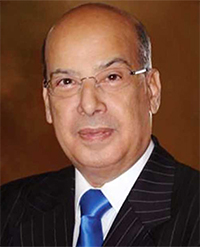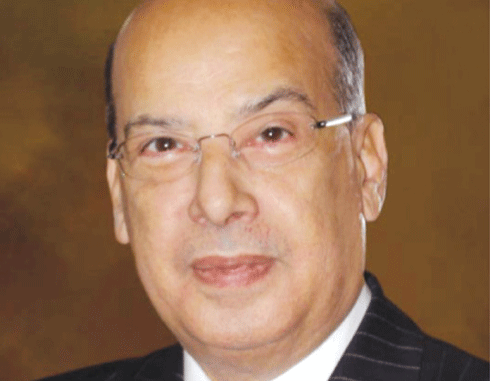
A new report has been produced on the Organization of American States (OAS), a body that began with ideals appropriate to the geo-politics of the 1940s. Those old ideals were enshrined in a Charter that now traps the Organization and immobilizes it.
Over time, the organization has become contentious, unconstructive and increasingly irrelevant to the peoples it was ostensibly created to serve, not because of the actions of Caribbean countries but due to the desire by a few powerful countries to coerce the OAS into adopting positions aligned to their national foreign policy agendas.
This latest report, entitled “Rebuilding Hemispheric Consensus: A Reform for the Organization of American States”, is written by Ben Raderstorf and Michael Shifter, of the Inter-American Dialogue, a US-based think-tank on issues in the Western Hemisphere.
The Report is well-meaning, and its authors have impressive credentials on North American and Latin American matters, but very little on the Caribbean except for Cuba and Haiti which have preoccupied the US for decades. Little surprise, therefore, that they misunderstand, almost entirely, the participation of Caribbean countries in the OAS and how they view the organization.
This is how the authors regard the Caribbean in the OAS: “Some Caribbean states have taken a transactional approach, looking to leverage their votes in the Permanent Council and the General Assembly to secure development assistance, whether directly through the organization or from a donor state looking to influence votes. This was the functional impact of Petrocaribe, Venezuela’s ambitious energy assistance programme, which helped Chávez bolster his coalition of allies.”
Remarkably, the Report makes no mention of big countries in the Organization that pressure or threaten smaller countries into supporting their positions. Nor does it admit that some smaller countries leverage their votes in pursuit of cozy relations with big nations.
It seems the authors ingenuously believe that only Caribbean countries bargain with their votes. If this is truly their belief, they should rewrite the history of all international and regional organizations which, from their beginning, have been active fora for vote bargaining and influence-buying.
This surprising naivety apart, the Report suggests that Caribbean countries’ interest in the OAS is only in its development pillar. They state that “eliminating the development programmes would be a non-starter for a number of member states, especially in the Caribbean”, and they proceed to recommend eliminating them anyway, but with a sop.
And here’s the sop: “The OAS should seek to transfer these programmes to other institutions, including the Inter-American Development Bank (which would first require accession to membership for some countries) and the Caribbean Development Bank, or negotiate their replacement. In exchange for supporting this move, Caribbean countries could even negotiate an increase in development aid.”
The entire proposition is, of course, far-fetched and illusionary. But what is disturbing is the underlying proposition that Caribbean countries get “development aid” from OAS member states. Development aid to the Caribbean has been dwindling for many years from the US and other large countries in the Hemisphere, and where such aid is still available it has been concentrated in two countries, Haiti and Jamaica.
In any event, donor nations prefer to offer aid bilaterally and not through international and regional organizations where they get no leverage over the recipient nation. The authors would have done better to note that aid is also “transactional” for some countries and used as leverage for support or influence.
Also, the authors would have benefitted from consultation with Caribbean representatives and not just, as they admit, staffers in the Secretary-General’s office and meetings that did not include representatives of even one Caribbean organization.
Had they consulted Caribbean representatives, they would have learned that many Caribbean countries want to see the OAS reformed, but not by tinkering at its edges or by plastering-over its deep fault lines.
What is more, contrary to the Report’s assertions, the Caribbean is not about development only. Caribbean countries have contributed meaningfully to the OAS’ work in democracy, security and human rights.
Most Caribbean countries have an outstanding record in these areas, superior to many others. So, while the Caribbean strongly supports the development work of the OAS, it also wants to see democracy and human rights respected and upheld in all member countries, bar none.
The biggest achievement of the OAS over the last three years was assisting with the peaceful transition of the government of Haiti in 2016 when Michelle Martelly’s term of office ended with no elected successor and the country was on the brink of civil disorder. I, as a Caribbean Ambassador and Chair of the Permanent Council, had the honour to lead the OAS team that helped the process.
Further, the Caribbean made significant contributions to the formulation of the Santiago Commitment on Democracy adopted in 1991 (the precursor to the Inter-American Democratic Charter) and the subsequent programme of work for the promotion and consolidation of democracy.
Today, the Caribbean’s work in the OAS on multi-dimensional security has been pioneering.
As for finances, while contributions from member states decreased from US$46.7 million in 2012 to US$27.5 million in 2016, the Caribbean is the only region that voluntarily increased its contributions.
The OAS requires root-and-branch reconstruction. Its Charters are outdated and not fit for purpose in today’s complex world; the relationship between the Secretary-General and the Permanent Council, consisting of senior representatives of member governments, is not defined, allowing for confusion and sometimes mischief; and its objectives urgently need to be re-negotiated and recast for relevance to the peoples of its member countries.
But, few are willing to open that Pandora’s box. Some governments are content with the organization being susceptible to manipulation by those who leverage power, or they are terrified that real reconstruction would produce an organization with very different – even though more relevant – objectives.
Anyone attending a meeting of the Permanent Council – the supervisory body for the implementation of collective government decisions – would be alarmed that much of its time is taken up with ceremony and not substance. They would be equally alarmed that meetings of the Permanent Council are streamed live on the Internet, precluding any meaningful negotiations on serious issues. Instead, Council meetings become grandstanding events where the business of closed door, earnest diplomacy and negotiation is abandoned for screen performances in satisfaction of narrow, national agendas. No wonder the Secretary-General takes little account of it and acts as he wishes.
Many Caribbean countries recognize that the OAS requires urgent reconstruction to avoid its irrelevance. Right now, its activities are akin to firing up a furnace in an igloo.
Responses and previous commentaries: www.sirronaldsanders.com
(The writer is Antigua and Barbuda’s Ambassador to the United States and the OAS. He is also a Senior Fellow at the Institute of Commonwealth Studies at the University of London and Massey College in the University of Toronto. The views expressed are entirely his own)














Shorter Sanders:
The OAS has always been a fist-in-glove means for projecting US hegemony (aka imperialism) in the Western Hemisphere; but the failing empire has become desperate and has taken the gloves off!